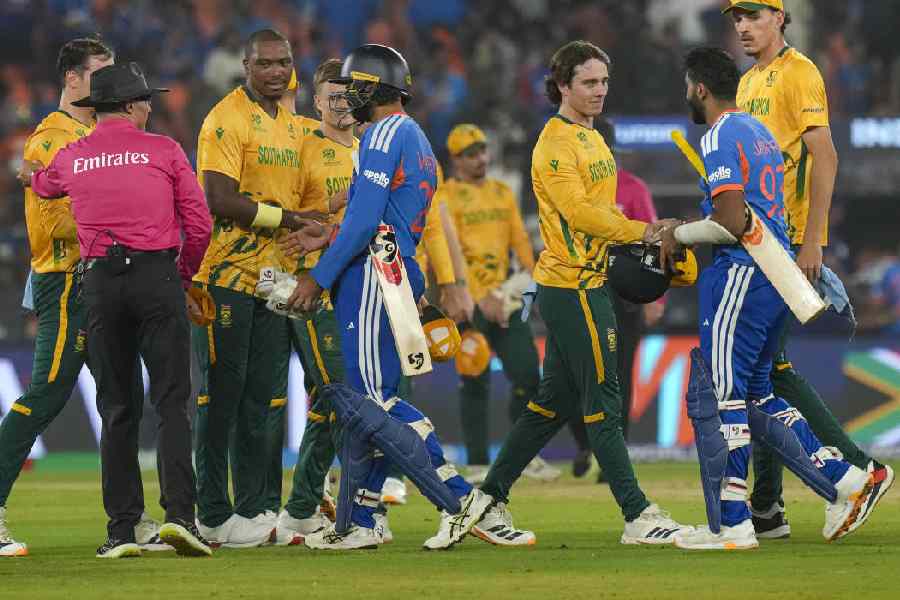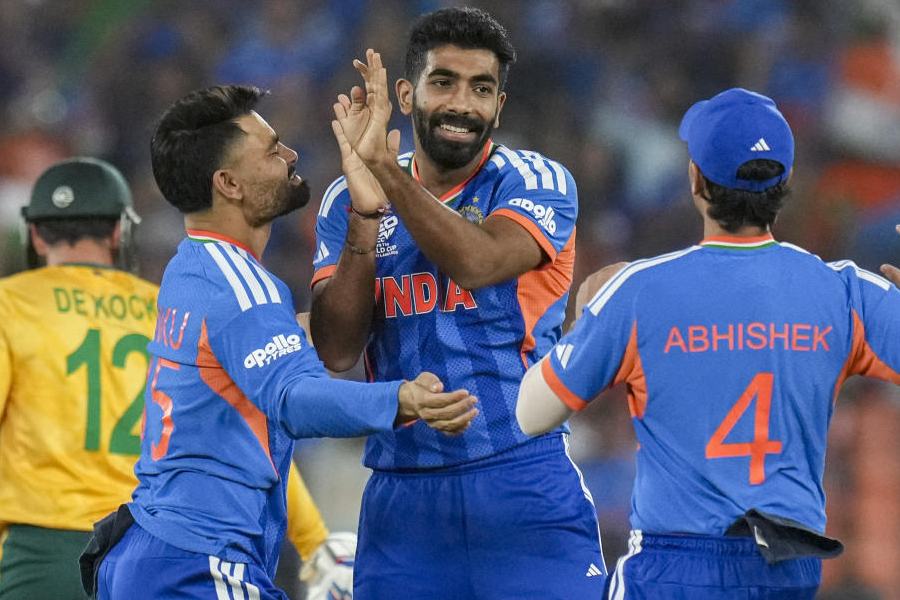Foggy glasses
Sir — If people thought that smartphones have become appendages to our
bodies, they have got another think coming. Meta recently unveiled its new display smart glasses, which allow users to send replies on messaging platforms
and are set to take on — replace? — the phone as the key device in future. But during the launch, Meta’s chief was unable to demonstrate the full performance of the glasses owing to a glitch in the Wi-Fi. One wonders whether the glasses which cost $799 are really a groundbreaking innovation if they are unable to perform simple functions
without the internet.
Aman Bakshi,
Delhi
Poor solution
Sir — To deal with the menace of illegal stubble burning, the Supreme Court suggested that the government consider sending some farmers to jail (“SC stubble burning pill: Jail some farmers”, Sept 18). Farmers are integral to the economy. That does not mean that they are allowed to continue burning stubble unchecked.
Dimple Wadhawan,
Kanpur
Sir — While the Supreme Court’s concern about the spike in air pollution in the Delhi-National Capital Region during winter is valid, criminalising farmers cannot be the only remedy to the menace of stubble burning. The reality is that small and marginal farmers, pressed for time between rice harvest and wheat sowing, often resort to stubble burning because machinery for residue management is costly and alternatives are not readily available.
Punishment without support will deepen rural distress. The government should create markets, subsidise residue-handling equipment, and incentivise industries to absorb stubble as raw material. Penal provisions can remain for habitual offenders, but deterrence must be coupled with enabling measures.
Gopalaswamy J.,
Chennai
Sir — The Supreme Court has directed the Commission for Air Quality Management, the Central Pollution Control Board and State Pollution Control Boards to act fast against stubble burning. It asked them to impose penalties to create deterrence. The authorities should book the real culprits who fund, encourage or profit from stubble burning.
R.S. Narula,
Patiala
Different war
Sir — In “Sport as war” (Sept 19), T.M. Krishna rightly pointed out the difference between playing cricket for commercial reasons and “acting” conscientiously to show that the Asia Cup match won against Pakistan was a tribute to the victims of the Pahalgam terror attack.
If Indian players genuinely cared about the Pahalgam victims, they should have
offered financial aid to the families of those who were killed. If India has not boycotted Pakistan in every sphere, it does not behove the Men in Blue to disregard the rules of the game when meeting Pakistan on the cricket field.
Kajal Chatterjee,
Calcutta
Sir — After reading “Sports as war”, l feel that no individual can be forced to express an emotion that is contrary to his or her conscience. Some statements have to be made to express solidarity in the face of terror. Islamabad, which is complicit in the terror attack in Pahalgam, cannot expect Indian players to shake hands with their Pakistani counterparts as if everything is hunky-dory.
Gurnoor Grewal,
Chandigarh
Sir — It is imprudent to say that sports and politics should be separate. Indian players’ refusal to shake hands with their Pakistani counterparts in an Asia Cup match was uncalled for. This match had the approval of the Indian government. So all the formalities pertaining to the game should have been fulfilled.
Atul Krishna Srivastava,
Navi Mumbai










